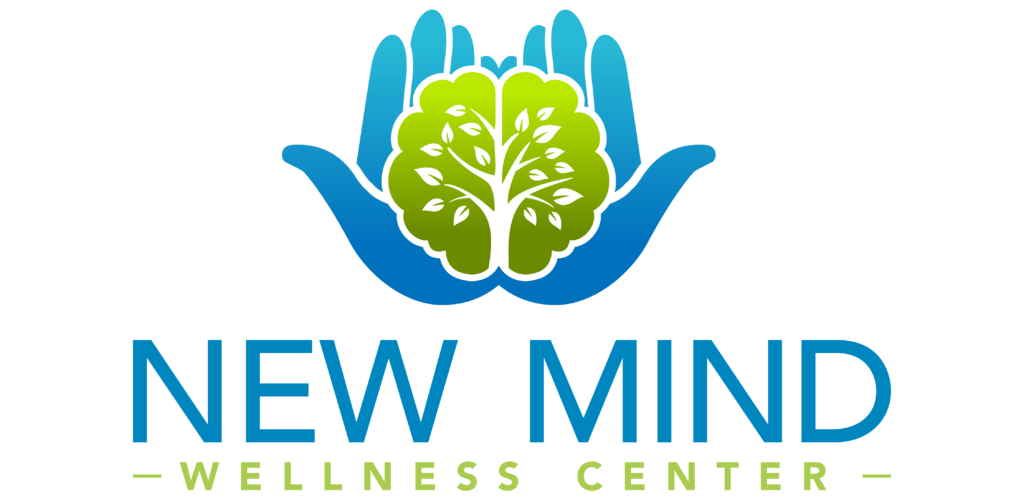Home » Depression Treatment
Outpatient Treatment for depression
New Mind Wellness offers one of the most comprehensive outpatient depression treatment programs in PA. Find out how we are helping others in Philadelphia manage depression for better living everyday.
Call us today or visit our admissions page to get started.

Home » Depression Treatment
Depression Treatment in Philadelphia


Medically reviewed by Kelsi Lefever, Psychiatric Nurse Practitioner
January 30, 2025
Table of Contents
- What is Depression?
- Signs and Symptoms of Depression
- Types of Depression
- Philadelphia Depression Statistics
- How Does Depression Treatment in Philadelphia Work?
- What To Expect During Depression Treatment in Philadelphia
- Types of Depression Treatment
- Benefits of Depression Treatment in Philadelphia
- Depression Treatment in Philadelphia
Begin Mental Health Treatment in Philadelphia Today
If depression is affecting your mood, energy, or ability to get through daily life, treatment can help you regain stability and feel more like yourself again.
Depression isn’t just a bad mood, but a medical condition that affects how you think, feel, and function. Fortunately, many people improve with the right care.
Through outpatient mental health treatment programs in Philadelphia, people can access therapy and structured support that fits around work, school, and family responsibilities.
Find out how depression is treated, what options are available, and what to expect when seeking professional help for depression.
If you or someone close to you has been struggling with depression and is seeking effective, flexible mental health treatment in Pennsylvania, we are available to help. Contact us directly to learn more.
How Depression Is Treated in Philadelphia
Depression treatment focuses on helping people manage symptoms, understand emotional patterns, and build healthier ways of coping. Most treatment plans combine therapy, skill-building, and ongoing support rather than relying on a single approach.
Outpatient depression treatment often begins with an evaluation to understand symptoms, stressors, and daily challenges.
From there, care is tailored to the individual and may include regular therapy sessions, structured programs, or coordinated medication support when needed.
Treatment is not about fixing someone overnight. It’s a gradual process that helps reduce symptoms, improve emotional regulation, and restore daily functioning.
With consistent care, many people find they can better manage their mood, regain motivation, and feel more connected to their lives again.
Signs and Symptoms of Depression
Depression is a mood disorder that manifests in various ways and can affect every aspect of your life.
Common symptoms of depression include:
Feeling overwhelmingly sad or empty most days, often with no clear cause. This sadness may be described as a heavy, dark feeling that doesn’t go away.
Losing interest in activities that were once enjoyable, such as hobbies, sports, or socializing. This can include a loss of sexual desire and decreased interest in intimacy.
A pervasive sense that nothing will ever get better and there’s nothing you can do to improve your situation. This often leads to a feeling of being trapped.
Becoming easily annoyed or angry, even over minor inconveniences. This can lead to frequent arguments or outbursts.
Feeling restless, tense, or on edge. This can include physical symptoms such as a racing heart or sweaty palms.
Struggling to focus on tasks, follow conversations, or complete work. This can make everyday tasks feel overwhelming.
Experiencing significant weight loss or gain not related to dieting. Appetite changes can vary, with some people eating more and others eating less.
Experiencing insomnia, such as difficulty falling asleep, staying asleep, or waking up too early. Conversely, some may sleep excessively, finding it hard to get out of bed.
Suffering from headaches, stomachaches, back pain, or other physical issues with no apparent medical cause.
Frequently thinking about death, having suicidal thoughts, or making suicide attempts. Suicidal ideation is a serious symptom that requires immediate attention.
An emotional detachment or feeling of numbness, where you feel disconnected from your emotions or surroundings.
Levels of Depression Treatment
Treatment for depression and other behavioral health conditions is offered at different levels of care, depending on need. If a person is an imminent risk to themselves or others, a bipolar or acute psych patient who is not stable on medication, then inpatient/residential mental health care may be necessary in the beginning.
Most people with depression who are clinically stable and safe, can usually begin depression treatment in Philadelphia at the PHP or even IOP levels of care. Everyone’s needs are unique.
Options for depression treatment in Philadelphia include:
- Outpatient treatment: One-on-one sessions with a licensed clinician to explore thoughts, behaviors, and emotions at a steady pace while you continue daily life.
- Intensive Outpatient Program (IOP): More structured than weekly therapy, with multiple sessions per week for deeper support and skill-building.
- Partial Hospitalization Program (PHP): A day-time structured program for people who need regular clinical support without overnight care.
- Psychiatric Hospitalization/Inpatient: People who need clinical stabilization and 24-hr supervision for safety begin here.
Inpatient Psychiatric Hospitalization
Inpatient care is the highest level of support. You stay in a hospital for 24/7 safety, stabilization, and medical monitoring. It’s designed for people in crisis who need immediate help, protection, and fast access to a full treatment team.
Partial Hospitalization Program (PHP)
PHP is a full‑day treatment program for people who need structured support but don’t require overnight care. You come in for several hours a day, most days of the week, for therapy, skill‑building, and medication support, then return home at night.
Intensive Outpatient Program (IOP)
IOP offers strong support with more flexibility than PHP. You attend therapy a few days a week for several hours at a time. It’s a good fit if you need consistent help managing symptoms but can safely live at home and keep some daily routines.
Outpatient Therapy
Outpatient care is the most flexible level. You meet with a therapist weekly or biweekly to work on symptoms, stress, and long‑term goals. It’s ideal for ongoing support, maintaining progress, or stepping down from higher levels of care.
Philadelphia Depression Statistics
Depression is among the most common types of mental health disorders in the world. It is also very treatable. The following highlight the prevalence of depression in the U.S. and Philadelphia:
- As stated previously with data from the NIMH, approximately 21 million adults in the U.S. have experienced at least one major depressive episode.
- In Philadelphia, around 1 in 6 adults reports having depression.
- Studies suggest that effective treatment, like the programs offered at New Mind Wellness, can significantly reduce symptoms for over 80% of people diagnosed with depression.
At New Mind Wellness, we offer high-quality treatment for depression and other mental health disorders in Philadelphia.
Take Our Depression Quiz
How Does Depression Treatment in Philadelphia Work?
Therapies That Treat Depression
Depression treatment often includes one or more forms of talk therapy as well as a range of other therapeutic approaches.
Therapy gives you tools to manage thoughts, emotions, and patterns that feed depression:
- Cognitive Behavioral Therapy (CBT): Helps you identify unhelpful thinking patterns and replace them with healthier, more balanced thoughts.
- Dialectical Behavior Therapy (DBT): Teaches skills for emotional regulation, stress tolerance, and interpersonal effectiveness.
- Mindfulness-based therapies: Help you stay grounded in the present and reduce rumination.
- Eye Movement Desensitization and Reprocessing (EMDR): Helps process distressing memories or past experiences that may contribute to depressive symptoms, reducing emotional intensity over time.
- Red light therapy: Uses targeted light exposure to support mood regulation, energy levels, and overall emotional well-being as part of a comprehensive depression treatment plan.
Your clinician may tailor therapy based on your specific symptoms and experiences.
Medications for Depression
Medication can be a helpful part of treating depression, especially when combined with therapy. Antidepressants work by balancing chemicals in the brain that affect mood and energy.
At New Mind Wellness, our therapists often work in partnership with your prescribing doctor or psychiatrist to ensure your treatment plan supports your overall health. Together, we can adjust therapy and medication as needed to find what works best for you.
Medication support for depressive disorders might include:
- Antidepressants to balance mood-related brain chemicals
- Medication monitoring and side effect management
- Collaborative planning between your therapist and prescriber
Combining medication with therapy often leads to stronger and longer-lasting improvements.
How Long Does Depression Treatment Last?
There’s no one-size-fits-all timetable for depression treatment.
How long you participate in treatment depends on several factors, including:
- Severity of symptoms
- How long you’ve been experiencing symptoms
- Personal goals and daily life demands
- Response to therapy and/or medication
Some people feel better in a few months, while others benefit from longer engagement with support. The goal isn’t to rush recovery, but to help you build lasting skills and resilience.
What Happens When Depression Isn’t Treated?
Leaving depression untreated can make symptoms harder to manage over time.
Some possible effects of untreated depression include:
- Worsening mood or increased emotional numbness
- Greater difficulty completing daily tasks
- Problems with relationships, work, or school
- Increased risk of anxiety or substance problems
- Risk of self-harm or suicidal thoughts
What To Expect During Depression Treatment in Philadelphia
Starting treatment can be daunting, but at New Mind Wellness, we ensure a supportive and respectful environment.
During your treatment, expect to:
- Engage in regular therapy sessions to explore the root causes of your depression
- Learn and practice new coping mechanisms
- Receive personalized attention and care from our team of professionals
- Regularly review and adjust your treatment plan to suit your progress
Types of Depression Treatment
Below is a list of depression treatment options commonly used to help individuals manage and overcome this condition. Keep in mind, the best treatment options for you or your loved one will depend on several distinct factors, including the type of depressive disorder, the severity of symptoms, and the presence of any co-occurring issues
Mood Stabilizers: Used to manage mood swings associated with depressive disorders.
Atypical Antipsychotics: Often prescribed when standard antidepressants do not provide relief.
Interpersonal Therapy (IPT): Addresses problems in personal relationships that may contribute to depression.
Psychodynamic Therapy: Aims to uncover underlying psychological conflicts affecting current behavior and mood.
Dialectical Behavior Therapy (DBT): Combines cognitive-behavioral techniques with mindfulness practices.
Skill Development Groups: Focus on developing specific skills to manage depression.
Psychoeducational Groups: Provide information about depression and teach strategies to handle its symptoms.
Nutrition Counseling and Diet Modification: Supports overall health and can impact mood stability.
Improved Sleep Hygiene: Essential for mental health maintenance.
Acupuncture:Traditional Chinese medicine technique used to alleviate various symptoms.
Art and Music Therapy: Creative therapies that help express emotions and improve mental health.
Transcranial Magnetic Stimulation (TMS): A non-invasive procedure that uses magnetic fields to stimulate nerve cells.
Deep Brain Stimulation (DBS): Involves implanting electrodes in certain areas of the brain.
Residential Treatment Programs: Provide a stable environment focusing on comprehensive care.
Partial Hospitalization and Intensive Outpatient Programs: Less intensive than inpatient care, suitable for those transitioning to or from full-time care.

Building a Life Beyond Depression
Depression treatment is about helping you reclaim meaning, activity, and connection in daily life.
Many people discover that therapy helps them notice patterns they didn’t see before, build healthier ways of thinking, and feel more engaged with life again.
Recovery from depression might involve:
- Rebuilding routines that support sleep, nutrition, and activity
- Strengthening supportive relationships
- Finding meaning in small daily goals and successes
- Practicing emotional regulation tools learned in therapy
These skills can help make improvements stick.

